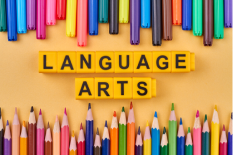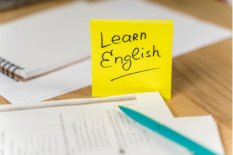Full Package (16 ELA courses)
New episodes just added!
ELA is an abbreviation for English Language Arts. It refers to the study and use of the English language in academic settings. The term is used in the United States and Canada. ELA encompasses reading, writing, listening, and speaking. It is often taught as a separate subject in elementary and secondary schools.
Categories
Course Packages, Reading, English, Language Arts ELA
Last Updated:November 12, 2023
Course Duration:
6h
About Course
ELA is an abbreviation for English Language Arts. It refers to the study and use of the English language in academic settings. The term is used in the United States and Canada. ELA encompasses reading, writing, listening, and speaking. It is often taught as a separate subject in elementary and secondary schools.
What I will learn?
- 1. Subject &Verb agreement
- 2. Summarize Events in Order
- 3. Relative Pronouns
- 4. Decoding Root Words & Prefixes
- 5. Summarizing Events in Order
- 6. Making Inferences
- 7. Progressive Verbs - Present
- 8. Identifying Subject and Verbs
- 9. Subject and Verb Agree
- 10. Lengthening Sentences
- 11. Linking -vs- Action Verbs
- 12. Using Strong Verbs
- 13. Compound Sentences
- 14. Complex Sentences
- 15. Run-On Sentences/Fragments
- 16. Setting & Plots
Course Curriculum
Decoding Root Words
Word Decoding is simply a way of breaking up a word into understandable parts. Phonics tells you how words are pronounced, but it is not much help in understanding a word through context or by remembering that parts of words contain smaller, sometimes more specific, sometimes more flexible meanings.
-
Lesson 1 (4th & 5th grade)
11:27
Summarize Events in Order
Summarizing is when you take a longer passage, from several sentences to several paragraphs or even more, and restate the essential main ideas in your own words. When you summarize, you end up with considerably less words than the original source.
-
Lesson 2 (4th & 5th grade)
12:33
Relative Pronouns
A relative pronoun is a pronoun that's used to introduce a relative clause. The main English relative pronouns are which, that, who, and whom. These words can also function as other parts of speech—they aren't exclusively used as relative pronouns.
-
Lesson 3 (4th & 5th grade)
14:19
Decoding Root Words & Prefixes
The very first step towards decoding words with suffixes and prefixes is to identify the affixes in it. It is extremely easy to recognize a prefix or suffix. A prefix is used before the root word. Whereas on the other hand, a suffix is used after the root word.
-
Lesson 4 (4th & 5th grade)
13:41
Identifying Evidence and details.
-
Lesson 5 (4th & 5th grade)
14:16
Making inferences
Making inferences means choosing the most likely explanation from the facts at hand. There are several ways to help you draw conclusions from what an author may be implying.
-
Lesson 6 (4th & 5th grade)
13:26
Progressive Verbs – Present
The present progressive (auxiliary verb be + verb ending in -ing) is used to express a current action, an action in progress or an unfinished action: The children are sleeping right now. It is often used for descriptions: Polly is wearing nice shoes today.
-
Lesson 7 (4th & 5th grade)
09:16
Identifying Subject and Verbs
-
Lesson 8
18:51
Subject and Verb Agree
Subjects and verbs must AGREE with one another in number (singular or plural).
-
Lesson 9
16:59
Lengthening Sentences
-
Lesson 10
16:31
Linking -vs- Action Verbs
-
Lesson 11
10:05
Using Strong Verbs
-
Lesson 12
11:09
Compound Sentences
A compound sentence is made up of two independent clauses joined by a coordinating conjunction (for, and, nor, but, or, yet, or so) and a comma or by a semicolon alone. Example: The pirate captain lost her treasure map, but she still found the buried treasure.
-
Lesson 13
11:24
Complex Sentences
-
Lesson 14
14:47
Run-On Sentences/Fragments
-
Lesson 15
11:16
Setting & Plots
-
Lesson 16
11:20
Student Ratings & Reviews
5.0
Total 2 Ratings
5
2 Ratings
4
0 Rating
3
0 Rating
2
0 Rating
1
0 Rating
it is a good Course
$299.00
-
LevelBeginner
-
Total Enrolled3
-
Duration6 hours
-
Last UpdatedNovember 12, 2023
-
CertificateCertificate of completion
Hi, Welcome back!
Material Includes
- 16 pre recorded video
- 4 articles
- 3 downloadable resources
- Full lifetime access
- Access on mobile and TV
- Certificate of Completion
Requirements
- No prior knowledge is required or assumed
Tags
Target Audience
- Anyone wanting to learn the ELA (4th & 8th grade)






